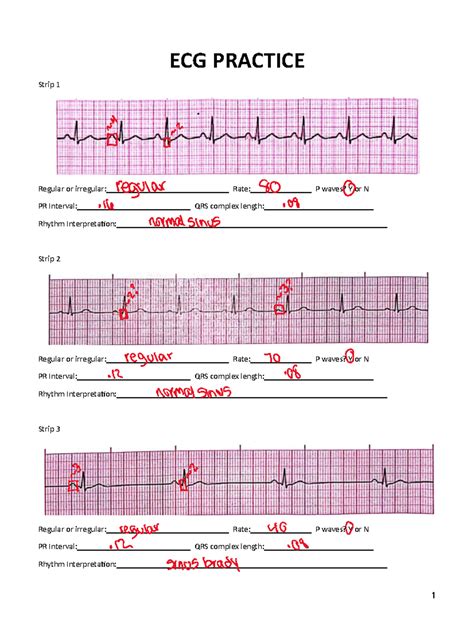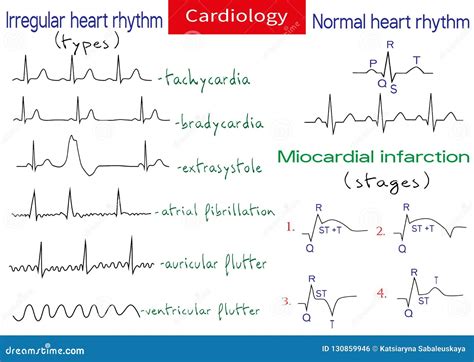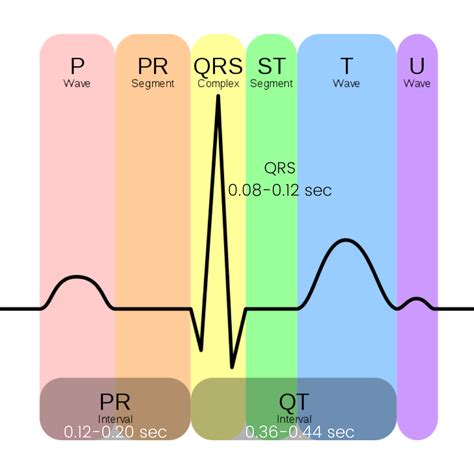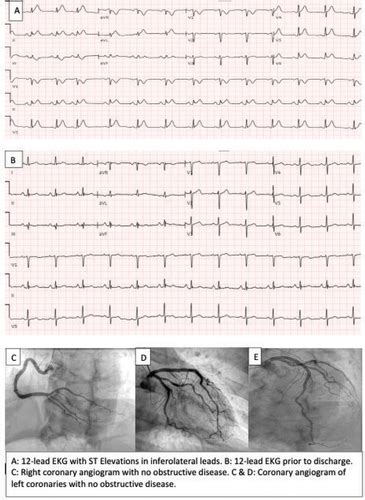Intro
Discover what an EKG test is, a non-invasive electrocardiogram procedure, using electrodes to measure heart rhythm, detecting arrhythmias, and monitoring cardiovascular health, including stress tests and Holter monitoring.
An electrocardiogram, commonly referred to as an EKG or ECG, is a non-invasive medical test used to measure the electrical activity of the heart. This test is a crucial diagnostic tool that helps healthcare professionals assess the heart's function and identify potential problems. The importance of an EKG test lies in its ability to provide valuable insights into the heart's electrical conduction system, allowing for early detection and treatment of various heart conditions.
The EKG test has become a standard procedure in medical settings, and its significance cannot be overstated. It is a painless and quick test that can be performed in a doctor's office, hospital, or even at home with a portable device. The test involves placing electrodes on the skin, usually on the chest, arms, and legs, which detect the electrical signals produced by the heart. These signals are then recorded and displayed on a graph, allowing healthcare professionals to analyze the heart's rhythm and identify any abnormalities.
The EKG test is an essential tool for diagnosing and monitoring various heart conditions, including arrhythmias, coronary artery disease, and heart valve problems. It is also used to assess the effectiveness of treatments and medications, as well as to monitor patients with pre-existing heart conditions. With the increasing prevalence of heart disease, the importance of EKG tests cannot be emphasized enough. As we delve deeper into the world of EKG tests, it is essential to understand the benefits, working mechanisms, and steps involved in this critical diagnostic procedure.
What Is An Ekg Test Used For

An EKG test is used for various purposes, including diagnosing and monitoring heart conditions, assessing the effectiveness of treatments, and detecting potential heart problems. Some of the common uses of an EKG test include:
- Diagnosing arrhythmias, such as atrial fibrillation or ventricular tachycardia
- Detecting coronary artery disease, which can lead to heart attacks
- Monitoring heart valve problems, such as mitral regurgitation or aortic stenosis
- Assessing the effectiveness of medications, such as beta blockers or anti-arrhythmic drugs
- Monitoring patients with pre-existing heart conditions, such as heart failure or cardiomyopathy
- Detecting potential heart problems in asymptomatic individuals, such as those with a family history of heart disease
How Does An Ekg Test Work
An EKG test works by detecting the electrical signals produced by the heart. These signals are generated by the heart's electrical conduction system, which regulates the heartbeat. The test involves placing electrodes on the skin, usually on the chest, arms, and legs, which detect the electrical signals and transmit them to a recorder. The recorder then displays the signals on a graph, allowing healthcare professionals to analyze the heart's rhythm and identify any abnormalities.The EKG test can detect various types of heart rhythms, including normal sinus rhythm, atrial fibrillation, and ventricular tachycardia. It can also detect signs of heart damage, such as Q waves or ST-segment elevation, which can indicate a heart attack. The test is usually performed in a few minutes, and the results are available immediately.
Types Of Ekg Tests

There are several types of EKG tests, including:
- Resting EKG: This is the most common type of EKG test, which is performed while the patient is at rest.
- Stress EKG: This type of test is performed while the patient is exercising, usually on a treadmill or stationary bike.
- Ambulatory EKG: This type of test is performed over a longer period, usually 24-48 hours, using a portable device.
- Event monitor EKG: This type of test is performed over a shorter period, usually 1-2 weeks, using a portable device that records the heart's activity during specific events, such as chest pain or palpitations.
Each type of EKG test has its own advantages and disadvantages, and the choice of test depends on the patient's specific needs and medical condition.
Benefits Of An Ekg Test
An EKG test has several benefits, including:- Early detection of heart problems: An EKG test can detect potential heart problems before symptoms appear, allowing for early treatment and prevention of complications.
- Non-invasive: The test is non-invasive and painless, making it a comfortable and convenient diagnostic tool.
- Quick results: The test is usually performed in a few minutes, and the results are available immediately.
- Cost-effective: An EKG test is a cost-effective diagnostic tool compared to other imaging tests, such as echocardiography or cardiac catheterization.
Overall, an EKG test is a valuable diagnostic tool that provides essential information about the heart's electrical activity. Its benefits, working mechanisms, and steps involved make it an indispensable test for diagnosing and monitoring heart conditions.
How To Prepare For An Ekg Test

To prepare for an EKG test, patients should:
- Avoid eating a heavy meal before the test
- Avoid drinking caffeine or other stimulants before the test
- Wear comfortable clothing and avoid wearing metal jewelry or other accessories that may interfere with the test
- Inform their healthcare provider about any medications they are taking, including over-the-counter medications and supplements
- Inform their healthcare provider about any medical conditions they have, including heart disease, diabetes, or high blood pressure
By following these steps, patients can ensure that their EKG test is accurate and reliable.
What To Expect During An Ekg Test
During an EKG test, patients can expect:- To be asked to lie down on a table or sit in a chair
- To have electrodes placed on their skin, usually on the chest, arms, and legs
- To be connected to a recorder that will display the heart's electrical activity on a graph
- To be asked to remain still and quiet during the test
- To have the test performed in a few minutes, usually 5-10 minutes
The test is usually performed in a quiet and comfortable environment, and patients may be asked to breathe deeply or perform other maneuvers to help the healthcare provider interpret the results.
Risks And Complications Of An Ekg Test

An EKG test is generally a safe and non-invasive procedure, but there are some potential risks and complications to be aware of, including:
- Skin irritation or allergic reactions to the electrodes
- Discomfort or pain during the test, especially if the patient has sensitive skin
- Anxiety or stress during the test, especially if the patient is claustrophobic or has a fear of medical procedures
- Interference from other electrical devices, such as pacemakers or implantable cardioverter-defibrillators (ICDs)
Overall, the risks and complications of an EKG test are minimal, and the benefits of the test far outweigh the potential risks.
Interpreting Ekg Results
Interpreting EKG results requires specialized training and expertise, and healthcare professionals use various techniques to analyze the heart's electrical activity. The results of an EKG test can be normal or abnormal, and abnormal results may indicate a variety of heart conditions, including arrhythmias, coronary artery disease, or heart valve problems.Some common abnormal EKG results include:
- Arrhythmias, such as atrial fibrillation or ventricular tachycardia
- Signs of heart damage, such as Q waves or ST-segment elevation
- Signs of heart strain, such as ST-segment depression or T-wave inversion
- Signs of cardiac conduction abnormalities, such as bundle branch blocks or atrioventricular blocks
By interpreting EKG results accurately, healthcare professionals can diagnose and treat heart conditions effectively, improving patient outcomes and quality of life.
Conclusion And Next Steps

In conclusion, an EKG test is a valuable diagnostic tool that provides essential information about the heart's electrical activity. By understanding the benefits, working mechanisms, and steps involved in an EKG test, patients can take an active role in their healthcare and make informed decisions about their treatment. If you have any concerns about your heart health or would like to learn more about EKG tests, consult with your healthcare provider or a qualified medical professional.
We invite you to share your thoughts and experiences with EKG tests in the comments section below. Have you had an EKG test before? What was your experience like? Do you have any questions or concerns about EKG tests? Share your story and help others understand the importance of this diagnostic tool.
What is an EKG test used for?
+An EKG test is used to diagnose and monitor heart conditions, including arrhythmias, coronary artery disease, and heart valve problems.
How long does an EKG test take?
+An EKG test usually takes a few minutes to perform, typically 5-10 minutes.
Is an EKG test painful?
+No, an EKG test is a non-invasive and painless procedure.
